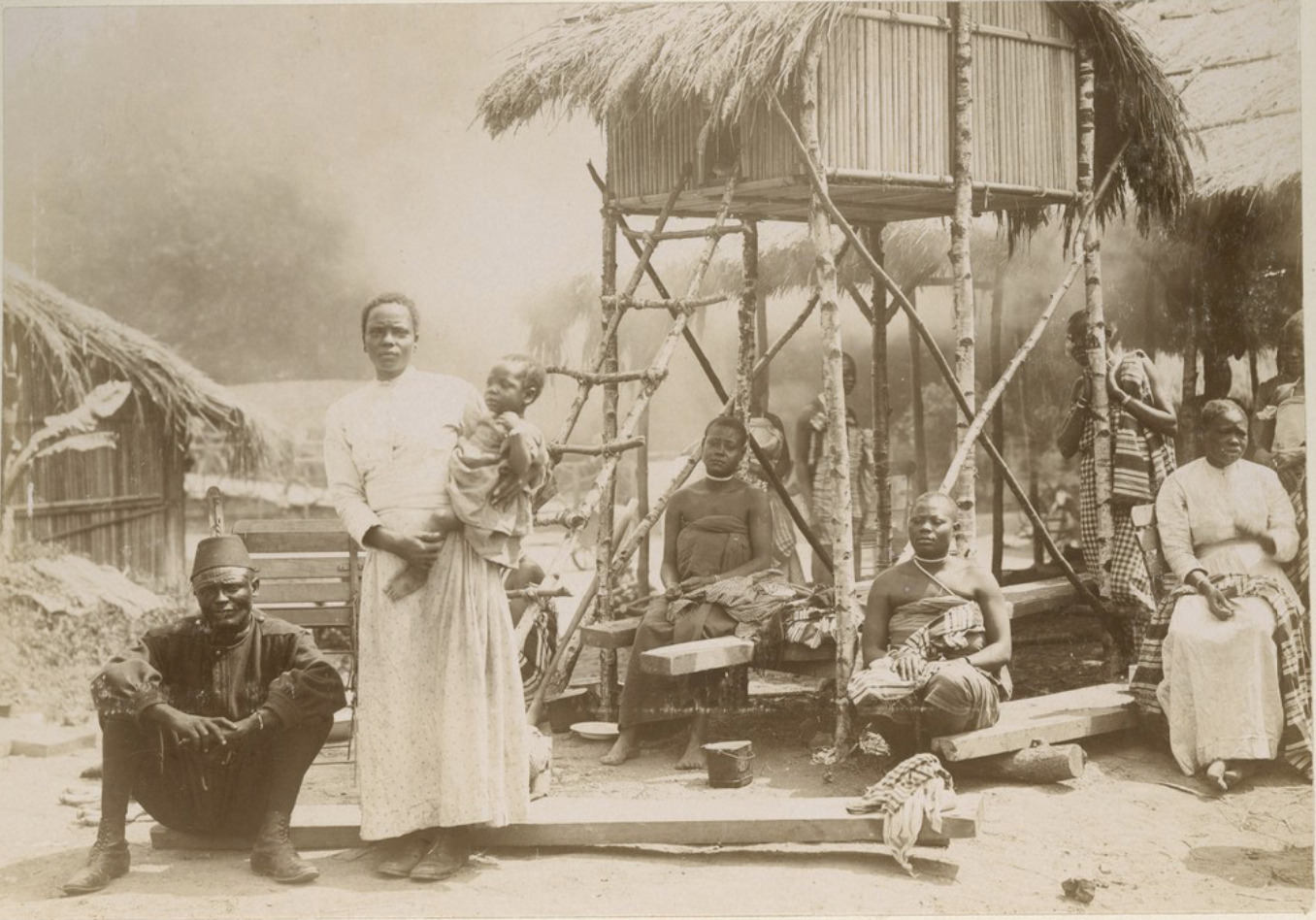Some twenty kilometers away from the 6th EU/AU summit, Belgian's Africa Museum is showing the Human Zoo exhibition, which revives the forgotten history of colonial powers and their practice of creating displays of human beings in live 'exhibits'.
Just hours before the start of the AU/EU summit in Brussels, Belgian Prime Minister Alexander De Croo met with his Congolese counterpart Jean-Michel Sama Lukonde at the Africa Museum in Tervuren, just outside Brussels, where the Belgian PM handed over an inventory of 84,000 Congolese artefacts stored in Belgium.
This is the first step in understanding how the artefacts arrived in Belgium in the first place and will allow, at some point in the future, for the return of the objects that were, in many cases, stolen under Belgian colonial rule and transported to Brussels.
'Colonial section'
The Congolese prime minister also paid a visit to the exhibition "Human Zoo."

The origins of the "zoos" go back to 1897 and King Leopold II who instructed his Africa Museum in Tervuren, near Brussels, to set up a ‘colonial section’ to lure investors and win the approval of the Belgian people for his colonial schemes in what was then known as The Congo.
To this end, over 260 Congolese were deported from Congo and became the core of the first human "zoos".

Other "human zoos" were opened in Charleroi and Antwerp in Belgium, while other countries soon followed suit.
On a wall along the hallway leading up to the exhibition, the names of hundreds of cities where the "zoos" visited and the dates of the visits spanning over half a century, are displayed.

The exhibition first appeared in France's Musée Branly, and was created by French historian Pascal Blanchard. It opened in Tervuren in November last year, to coincide with the 125th year since Leopold opened his first "human zoo."
The last of the "human zoos" closed in 1958, but that wasn't the end of it.
The "zoos" created stereotypes which live on in the people's minds until today, says Marie-Reine Iyumva, who created part of the exhibition.
Most of the visitors, when they come to the museum, they are kind of stuck in the past and don't really think about the consequences that those images built in todays society. Human zoos really built stereotypes in people's minds.
PODCAST: Marie-Reine Iyumva talks about the "Human Zoos" exhibition in Tervuren, Belgium.
"Most of the visitors, when they come to the museum, they are kind of stuck in the past and don't really think about the consequences that those images built in today's society," she says. "Human zoos really built stereotypes in people's minds."
The Human Zoo exhibition takes visitors through a history of racial theories that were prevalent in previous centuries, which classified races, "established" intelligence by skull measurements and, through colorful posters, highlighted the "exotic" nature of people in the colonies.

Today, the stereotypes persist. To help encourage discussion and debate, Iyumva created the wall entitled Already said, Already heard.
It features fifteen phrases, in French, Dutch and English, which are commonly used today.
Iyumva says: "They are little phrases that we can say every day but that are really hurtful to people, and they are the most common sort of racism, because it is really hard to point out." Examples include: "Wow, your English is really good." Or: "You look really beautiful for a black woman."

The wall with the offensive phrases was also shown to Congolese Prime Minister Jean-Michel Sama Lukonde.
"He recognized many of them," says Iyumva. "'It really happens," he said. "It proves that the wall is worth a discussion."
Death of millions
That the exhibition is now staged in Belgium "is very important," says Maarten Couttenier, a historian working for the Africa Museum. Belgium occupied an area almost eighty times its size in what is now the Democratic Republic of Congo, causing the death of millions and endless suffering as a result of torture, mutilation and forced labor. "We can look the violent past right in the eyes," he adds.

Criticism of Belgian's colonial policy was already starting to emerge in the 19th century and gathered in strength following an inquiry by the Belgian parliament.
This was underlined by the devastating report by Roger Casement from that detailed grim tales of killings, mutilations, kidnappings and cruel beatings of the native population by Belgian soldiers at the time.
But Leopold II never apologized.
"The then King never apologized and also never went to Congo," says Couttenier. "That was general policy, because it was too dangerous for kings or queens to go to a colonial territory."

Belgian King to visit Congo
It was only in 2020 that the current Belgian King, Philippe, a great-great grandson of a brother of Leopold II, for the first time offered his "deepest regret" in a letter to Congolese president Félix Tshisekedi, admitting that "during the colonial period, suffering was caused and humiliations were inflicted as well."
But the role of Leopold II in the atrocities was not mentioned.
However, he will have another chance. From 6-10 March, Philippe will pay an official visit to the DRC.
"It is probable that he will apologize for the crimes committed during the colonial period," says Couttenier. "We'll see what happens."







